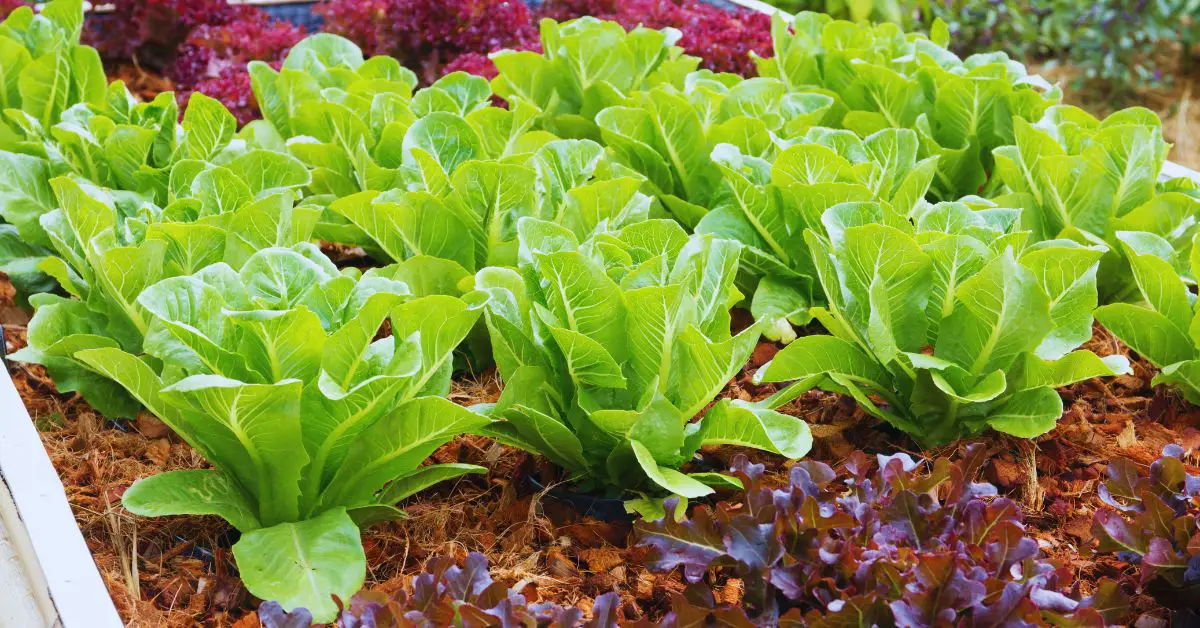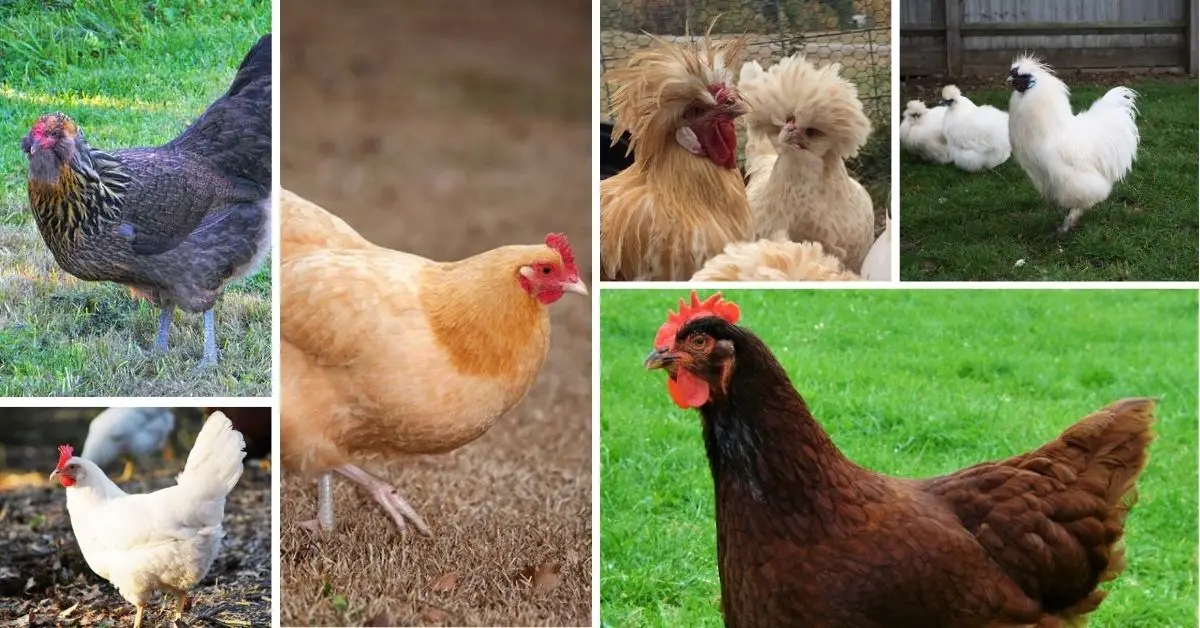Can I use lawn fertilizer in my garden? The answer is not as straightforward as a simple yes or no. Lawn fertilizers and garden fertilizers may seem interchangeable, but they are formulated differently for specific purposes. While both contain essential nutrients like nitrogen, phosphorus, and potassium, lawn fertilizers often have higher levels of nitrogen to promote lush green growth.
Hi there! I’m an avid gardener and lawn enthusiast, and I’ve often found myself wondering if I can use lawn fertilizer in my garden. Over the years, I’ve experimented with various gardening techniques and learned a great deal about the importance of proper fertilization.
Just like you, I’ve been curious about whether the nutrients that keep my lawn lush and green could also work wonders for my garden. In my quest for answers, I’ve done extensive research, consulted with experts, and even conducted my own trials.
In this article, I’ll share my findings and experience to help you determine if using lawn fertilizer in your garden is a good idea or if it’s best to stick to specialized garden fertilizers. So, let’s dive right in and explore the world of fertilizers together!
Understanding Fertilizer Composition And Nutrients
You may be wondering if you can use lawn fertilizer in your garden. The answer to this question depends on the composition of the fertilizer and the nutrients it contains.
Fertilizer nutrients are essential for plant growth and development, but different plants require different amounts and types of nutrients. Before applying any fertilizer to your garden, it’s important to understand the soil pH and any nutrient deficiencies that may exist.
Soil pH affects how well plants can absorb certain nutrients, so it’s necessary to ensure that the soil is at an appropriate pH level for your plants. Additionally, nutrient deficiency can cause stunted growth or poor yields in plants, so it’s important to address any deficiencies before applying fertilizer.
Micronutrients are also vital for plant health, although they are needed in smaller quantities than macronutrients like nitrogen, phosphorus, and potassium. These micronutrients include iron, zinc, manganese, boron, copper, and molybdenum.
While they may not be present in large amounts in many fertilizers, their importance should not be overlooked when considering fertilizer application.
Can I Use Lawn Fertilizer in My Garden?
Yes, technically you can use lawn fertilizer in your garden but it is not a good idea. Lawn fertilizers and fertilizers for gardens are different in their ingredients and balance.
If you give your garden too much of one thing and not enough of another then you won’t have good results. It is best to really get to know the differences in the fertilizers and use the correct one.
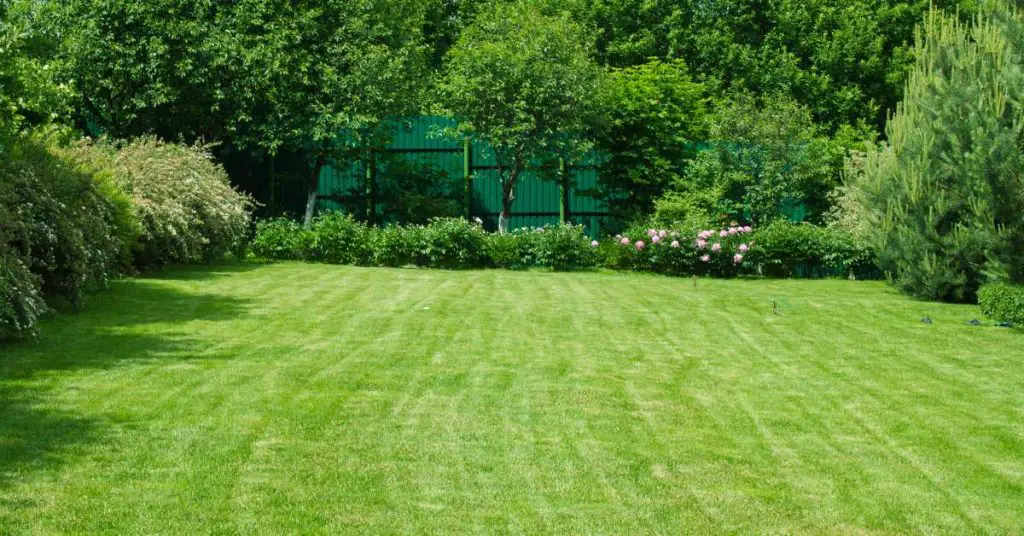
The Difference Between Lawn And Garden Fertilizers
Understanding the composition and nutrients of fertilizers is crucial to achieving optimal plant growth. However, it’s important to note that not all fertilizers are created equal.
The difference between lawn and garden fertilizers lies in their composition and nutrient ratios. Lawn fertilizers are specifically formulated for grass, which has different nutrient requirements compared to other plants. Garden fertilizers, on the other hand, are designed for a variety of plants with varying nutritional needs.
Using lawn fertilizer in your garden can result in imbalanced nutrient absorption and hinder plant growth. When it comes to fertilizer application, timing is key. Applying fertilizer at the wrong time can lead to nutrient burn or leaching into the soil before your plants have a chance to absorb them.
It’s also important to consider your soil composition and pH levels when choosing a fertilizer. Conducting a soil test can give you valuable information on what nutrients your soil may be lacking. In addition to proper fertilization, there are several plant growth factors to consider such as sunlight exposure and water availability.
By understanding these factors and choosing the appropriate fertilizer for your garden’s needs, you’ll be well on your way to achieving healthy and vibrant plants without compromising their growth potential.
The Importance Of Soil Testing
Soil testing is an essential part of maintaining a healthy garden. Before applying any fertilizers or amendments, it’s important to understand the nutrient levels and pH balance of your soil.
A nutrient analysis will provide information about the levels of nitrogen, phosphorus, and potassium present in your soil. This information will help you determine what type of fertilizer is needed for your garden.
pH balance is another critical factor in soil health. The pH level affects how well plants can absorb nutrients from the soil. A pH level that is too high or too low can cause nutrient deficiencies or toxicities in plants.
A soil test will indicate if adjustments need to be made to bring the pH into the ideal range for your plants. Once you have received your soil test results, you can determine if amendments are needed to improve soil health.
Amendments may include adding organic matter such as compost or adjusting the pH with lime or sulfur. By regularly testing and amending your soil, you can ensure that your garden is healthy and productive for years to come.
Factors To Consider When Choosing Fertilizers
After soil testing, it’s time to consider the types of fertilizers that will best suit your garden.
One common question is whether lawn fertilizer can be used in a garden. While technically possible, using lawn fertilizer in a garden may not be the best option.
Soil quality and plant needs should be taken into account when choosing fertilizers. Garden soil tends to require more nutrients than lawns due to the higher density and diversity of plants. Using a fertilizer formulated for lawns may not provide the necessary balance of nutrients for optimal plant growth.
Additionally, environmental impact should also be considered when choosing fertilizers. Lawn fertilizers are often high in nitrogen, which can contribute to water pollution if runoff occurs.
Cost-effectiveness is another factor to consider – while lawn fertilizers may be cheaper initially, the need for additional applications or poorer plant growth may make them more costly in the long run.
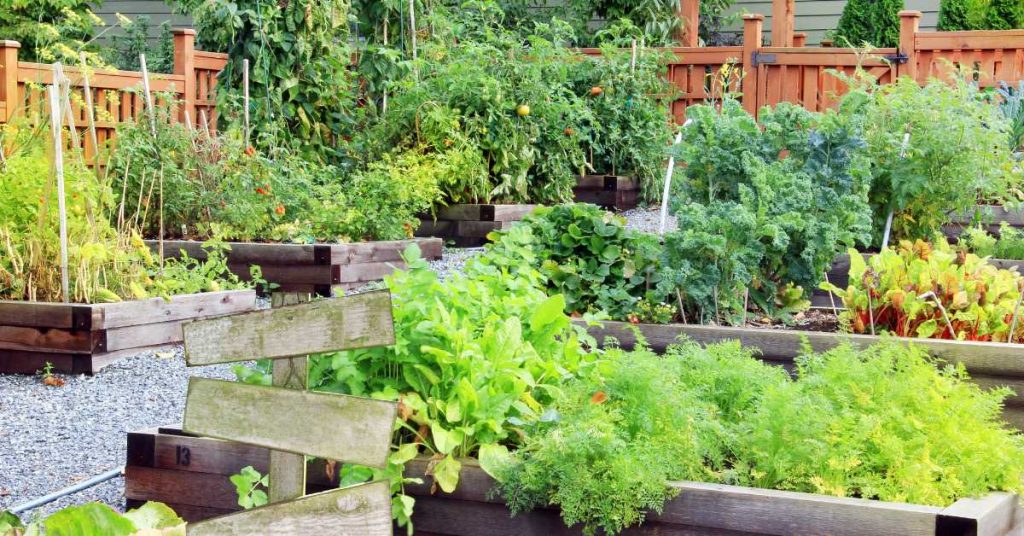
The Role Of Nitrogen, Phosphorus, And Potassium In Plant Growth
Nitrogen, phosphorus, and potassium are essential plant nutrients that play a crucial role in plant growth and development.
Nitrogen is necessary for the production of amino acids, proteins, and DNA. It is also responsible for leaf growth and chlorophyll production. However, nitrogen fixation by plants is limited; therefore, it is often added to the soil through fertilizers.
Phosphorus helps in root development, photosynthesis, and energy transfer within the plant. It also plays a vital role in seed formation and crop yield. Soil acidity can affect the availability of phosphorus to plants. If the soil pH is too high or low, it can lead to micronutrient deficiencies or toxicity.
Potassium helps regulate water balance in plants and plays an essential role in plant metabolism. It enhances stress tolerance, disease resistance, and overall plant development. Adequate potassium levels are crucial for fruit quality and yield.
It is important to note that while lawn fertilizer may contain these essential nutrients, it may not be formulated for garden use or may contain unwanted additives that can harm your plants.
Organic Vs. Synthetic Fertilizers
After understanding the importance of nitrogen, phosphorus, and potassium in plant growth, the next step is choosing the best fertilizer for your garden.
The two primary types of fertilizers are organic and synthetic. Organic fertilizers come from natural sources, such as compost and animal manure. Meanwhile, synthetic fertilizers are human-made using chemicals and minerals.
Organic benefits include better nutrient availability and longer-lasting results. They also improve soil structure, which encourages healthy root development. Organic fertilizers also promote beneficial microorganisms that aid in soil health.
On the other hand, synthetic drawbacks include environmental impact due to chemical runoff and high salt content that can harm plants.
When it comes to cost comparison, organic fertilizers may seem more expensive initially but have long-term savings since they help maintain soil health. Synthetic fertilizers may be cheaper upfront but have additional costs in mitigating environmental damage caused by their use.
Ultimately, choosing between organic or synthetic fertilizers depends on one’s preferences regarding their environmental impact, nutrient availability, and cost-effectiveness.
As gardeners aim for healthier plants and soils while minimizing negative impacts on the environment, choosing organic fertilizer seems like a wise choice.
What Is the Best Organic Lawn Fertilizer?
The best organic lawn fertilizer is made by Espoma. It is all-natural and a great fertilizer to use for your lawn. Espoma also makes a full line of garden fertilizers that make it easy to fertilize all of your favorite plants.
- Made from Feather Meal, Pasteurized Poultry Manure & Gypsum
- 8-0-0 formulation 30lbs
- Feeds up to 5,000 sq ft
- Safe for kids and pets
- Environmentally friendly
Application Methods For Fertilizers
You might be tempted to grab your trusty bag of lawn fertilizer and start spreading it all over your garden. However, before you do that, let me tell you that it’s not the best idea. While lawn fertilizer may contain some of the essential nutrients that plants need, it also contains high levels of nitrogen that can burn your plants. Instead, use a fertilizer specifically formulated for gardens.
When it comes to applying fertilizers in your garden, there are several methods to choose from.
The most common method is using a broadcast spreader, which evenly distributes the fertilizer across your entire garden. This is ideal for larger gardens and landscapes when you are tilling it in.
Alternatively, you can apply the fertilizer by hand if you have a smaller garden or want to target specific areas.
Another method is adding fertilizer to drip irrigation, where you mix the fertilizer with water and deliver it directly to the roots of your plants. This is an excellent way to ensure that your plants get all the nutrients they need without wasting any fertilizer.
Foliar feeding is yet another application method where you apply the fertilizer directly onto the plants. This is most effective when using a natural fertilizer like fish emulsion.
Last but not least, soil injection involves putting fertilizer into the ground around each plant’s root zone. This method ensures that the plant receives all necessary nutrients while minimizing runoff and leaching into nearby water sources.
Determine which application method works best for your garden and enjoy watching your plants thrive!
The Risks Of Overfertilization
After learning about the different methods for applying fertilizers, it’s important to understand the potential harm that can come from overfertilization.
One major issue is nutrient imbalance, which can lead to stunted growth or even death of plants. This happens when too much of one nutrient is applied and others become deficient in the soil.
Another concern is the environmental impact of excessive fertilizer use. When nutrients leach into nearby bodies of water, they can cause harmful algal blooms and other water quality issues. Additionally, nitrogen from fertilizers can contribute to greenhouse gas emissions when it is converted into nitrous oxide in the soil.
Plant toxicity is also a risk associated with overfertilization. Too much nitrogen can cause leaf burn and scorching, while excess phosphorus can inhibit a plant’s ability to absorb other necessary nutrients. Furthermore, soil degradation may occur as a result of repeated fertilizer applications, leading to decreased fertility and overall health of the soil.
In summary, while fertilizers are an important tool for promoting healthy plant growth, their misuse can have negative consequences on both plant health and the environment.
It’s crucial to carefully follow application instructions and avoid overfertilization in order to maintain a balanced ecosystem in your garden or landscape.
Common Garden Fertilizers And Their Uses
As the old saying goes, ‘You reap what you sow.’ And when it comes to gardening, fertilizers play a vital role in ensuring healthy and bountiful yields. However, not all fertilizers are created equal.
Lawn fertilizers are designed specifically for grass and contain high amounts of nitrogen to promote quick growth. Using them in your garden can lead to an overabundance of nitrogen, which can harm plants and result in stunted growth.
Instead, opt for garden fertilizers that cater to the specific needs of your crops.
There are several types of garden fertilizers, including organic and synthetic options. Organic fertilizers are made from natural materials such as compost or animal waste and provide long-lasting nutrients to the soil. Synthetic fertilizers are man-made and often contain higher concentrations of nutrients but can be harmful if overused.
When choosing a fertilizer, consider conducting a soil nutrient analysis to determine what nutrients your garden may be lacking. Additionally, research which fertilizers work best for specific plants to ensure optimal growth and yield.
Tips For Using Fertilizer In Your Garden
As we discussed in the previous section, there are alternatives to lawn fertilizer that can be used in your garden. However, if you do choose to use lawn fertilizer in your garden, it is important to consider the placement of the fertilizer. You don’t want to over-fertilize certain areas and cause damage to plants or negatively impact soil health.
Composting is a great way to improve soil health and reduce the need for synthetic fertilizers. By adding organic matter to your garden through composting, you can increase nutrient availability and improve soil structure. This will help your plants grow stronger and healthier, while also reducing the risk of nutrient runoff into nearby water sources.
When using any type of fertilizer, it’s important to follow a proper watering schedule. This will ensure that nutrients are able to reach plant roots and be absorbed properly.
Additionally, mulching around plants can help retain moisture in the soil and prevent evaporation, which can further enhance the effectiveness of fertilization.
It’s also important to regularly test soil pH levels to ensure that nutrients are available in a form that plants can easily absorb.
By considering these factors when using lawn fertilizer in your garden, you can ensure that your plants receive the nutrients they need without causing harm to their growth or surrounding environment. With proper placement, composting benefits, watering schedule, mulching benefits, and monitoring of soil pH levels, you’ll be on your way to a thriving and healthy garden!
Monitoring And Maintaining Fertilizer Use For Optimal Plant Health
As you carefully apply the fertilizer, envision your plants as hungry children who need food to grow. Just like children, plants require a healthy balance of nutrients to thrive.
Fertilizer application is an essential part of nutrient management that promotes optimal plant growth and soil health. However, it’s important to monitor and maintain fertilizer use to avoid negative environmental impacts.
Overuse can lead to excess nutrients in the soil, which can contaminate groundwater and cause harm to aquatic life. Additionally, improper use can result in uneven plant growth and even burn or kill your plants.
Regularly testing your soil and adjusting your fertilizer application accordingly is crucial for maintaining healthy plant growth while minimizing any potential harm. Remember, responsible fertilizer use not only benefits your garden but also contributes to a healthier environment for all living organisms.
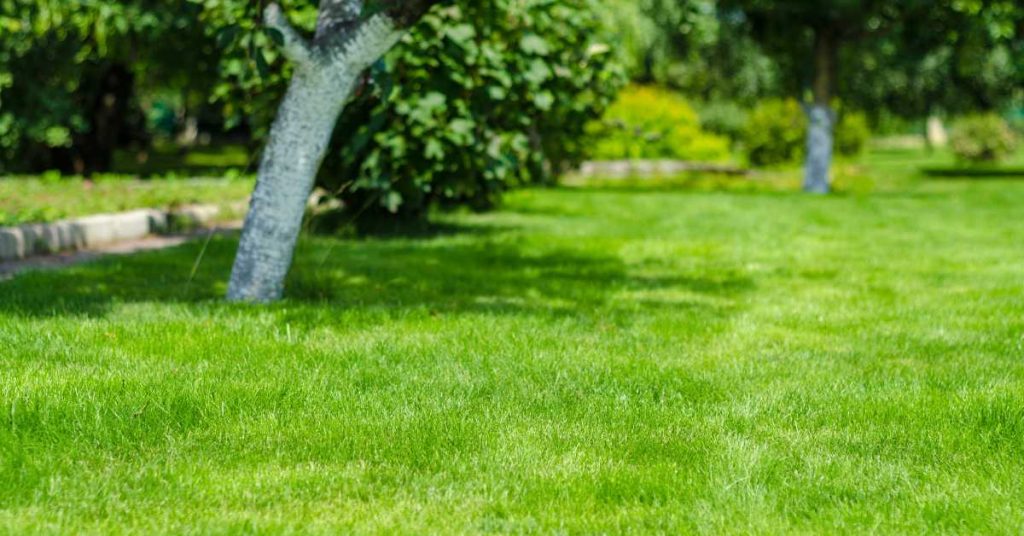
FAQs
Here are some common questions on using lawn fertilizer:
Can Lawn Fertilizer Harm My Garden Plants?
When it comes to fertilizing plants in your garden, it’s important to consider their nutrient requirements and the potential toxicity of any chemical composition.
While lawn fertilizers may contain nutrients that are beneficial for some garden plants, they can also cause harm if used improperly or in excessive amounts.
It’s worth exploring alternative options that are specifically formulated for garden use to ensure the health and longevity of your plants.
Additionally, the environmental impact of using lawn fertilizer should be taken into account when making a decision about what to use in your garden.
Is It Safe To Use Lawn Fertilizer On Edible Plants?
When it comes to using lawn fertilizer on edible plants, there are several factors to consider.
One of the main concerns is the use of toxic chemicals in traditional lawn fertilizers and the potential risks and precautions that come with them.
Organic alternatives may be a better option for those looking to avoid harmful chemicals, but they also have their pros and cons.
Additionally, soil contamination from fertilizers can have long-term effects on plant growth and health.
To ensure best practices, it’s important to follow dos and don’ts when applying any type of fertilizer to your garden.
Ultimately, expert opinions from experienced gardeners can provide valuable insight into what works best for your specific situation.
Can Using Lawn Fertilizer In My Garden Affect The Ph Level Of The Soil?
The delicate balance of a garden’s ecosystem can be likened to the harmony of an orchestra playing in perfect unison.
Every note, every instrument, and every player contributes to the overall sound that is produced.
Adding lawn fertilizer to your garden may disrupt this fragile balance, affecting not only the crops but also the nutrient absorption, soil composition, and environmental impact.
While it may seem like a quick fix for lackluster plant growth, there are alternative fertilizers that can provide the necessary nutrients without causing harm to your garden’s natural rhythm.
Consider the effects on crops and weigh them against the potential consequences before deciding what type of fertilizer is best for your garden.
How Often Should I Apply Fertilizer In My Garden?
To ensure optimal plant growth and crop yield, it’s important to properly care for your garden. This includes regularly applying plant nutrients and soil conditioner, such as organic slow-release fertilizer, at the appropriate intervals.
The frequency of application will depend on factors like the type of plants in your garden, the condition of your soil, and any composting techniques you may be using.
With proper garden care and regular use of soil conditioners like compost and organic fertilizer, you can help maintain healthy soil conditions and promote strong plant growth for a bountiful harvest.
Are There Any Specific Lawn Fertilizers That Are Better Suited For Garden Use?
When it comes to fertilizing your garden, there are a few factors to consider.
Organic alternatives can be a great choice for those looking to avoid potential environmental impact.
Nutrient ratios and soil type considerations are also important, as different plants have different needs.
Application methods vary, with some fertilizers requiring more frequent application than others.
Ultimately, the best fertilizer for your garden will depend on your specific needs and preferences.
While lawn fertilizers may work in some cases, it’s worth exploring other options that are better suited for garden use.
Final Thoughts
In conclusion, using lawn fertilizer in your garden can be a tricky decision. While it may seem convenient to use the same fertilizer for both your lawn and garden, it’s important to consider the potential harm it could cause to your plants.
The high nitrogen content in some lawn fertilizers can burn or even kill sensitive garden plants. Moreover, if you plan on growing edible plants, be cautious about using lawn fertilizers that contain toxic chemicals.
In the end, it’s always best to do thorough research and consult with a gardening expert before making any decisions about which fertilizer to use. So take your time, weigh the pros and cons, and make an informed decision that will ultimately benefit your beloved garden.



